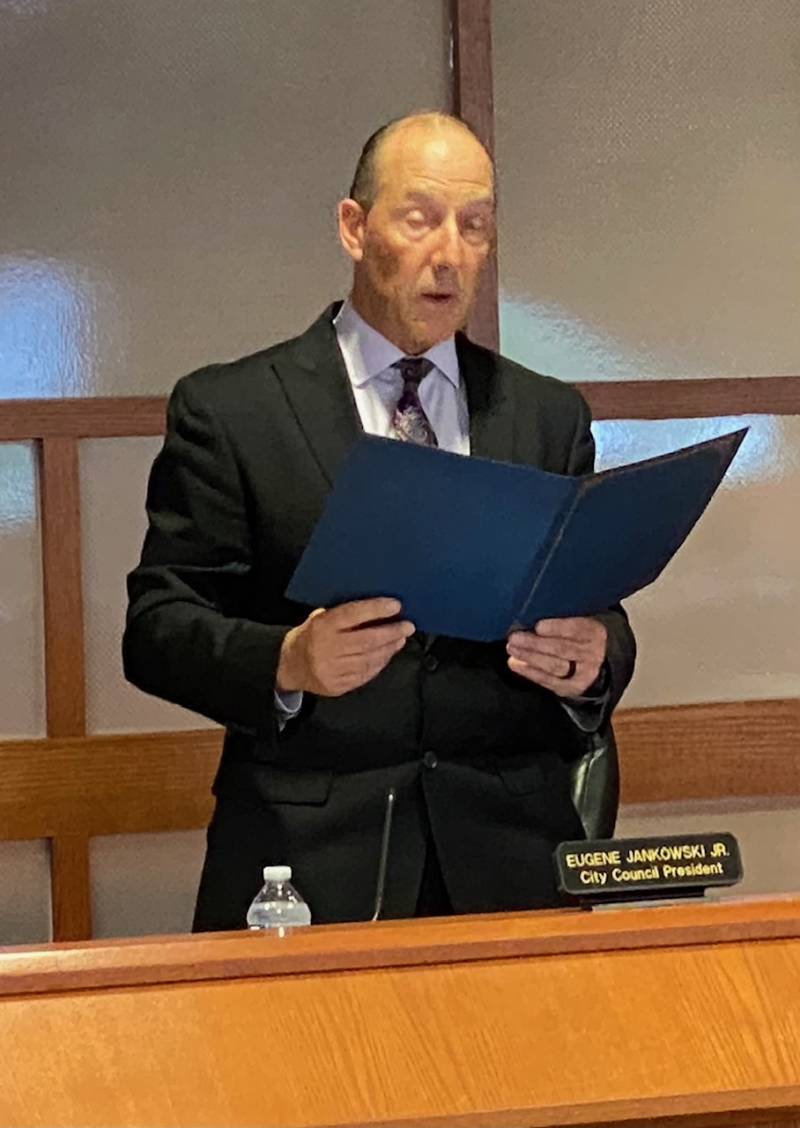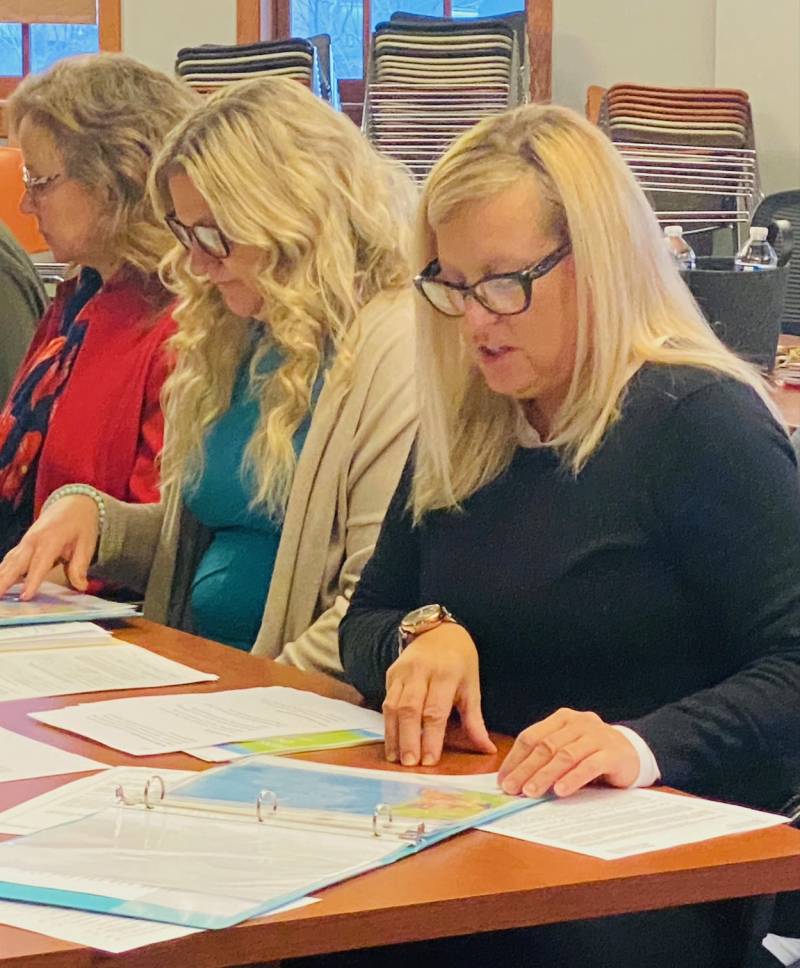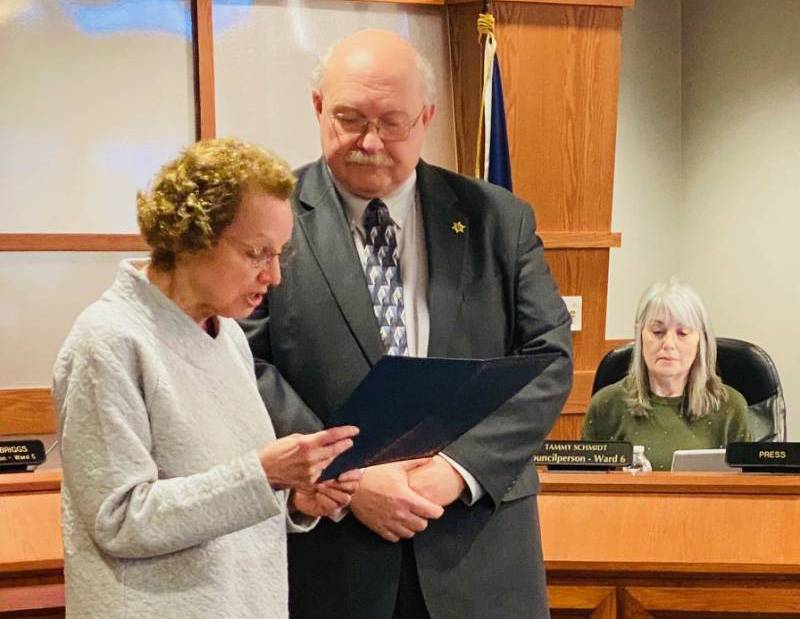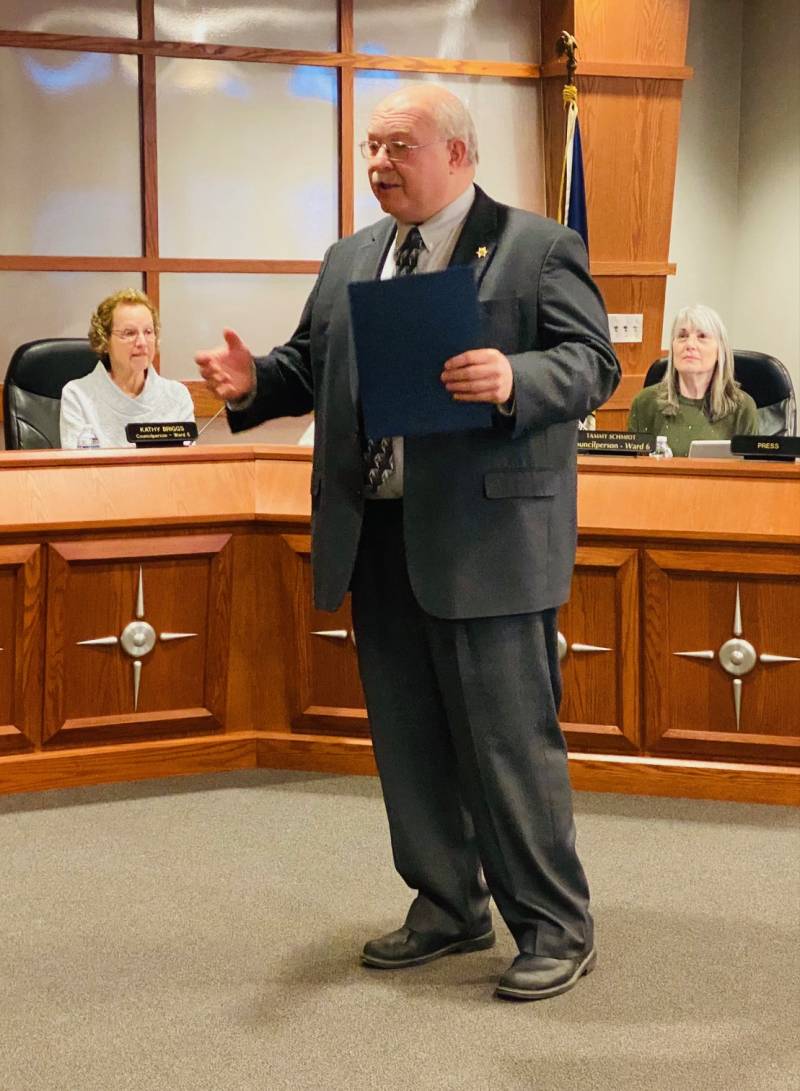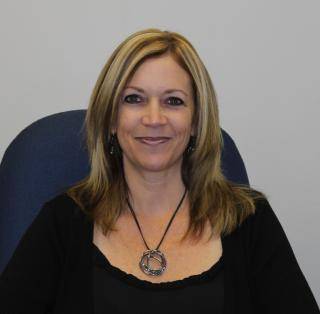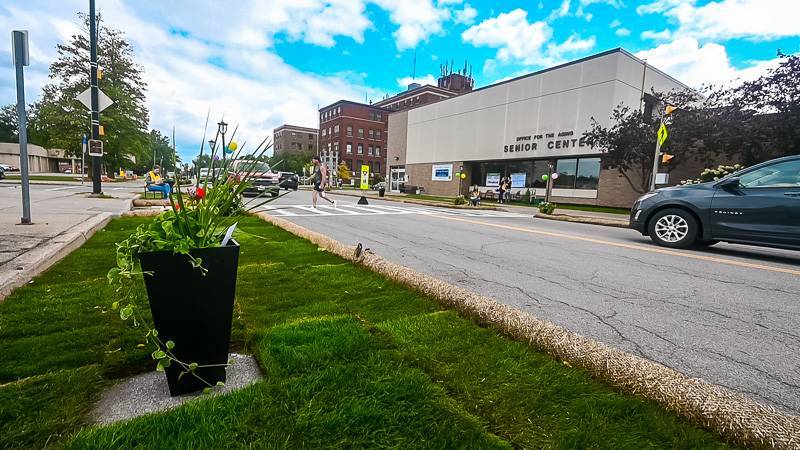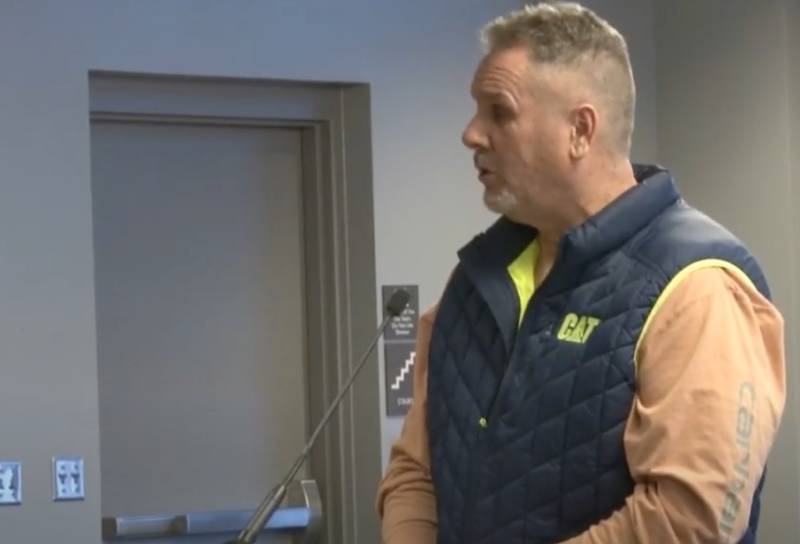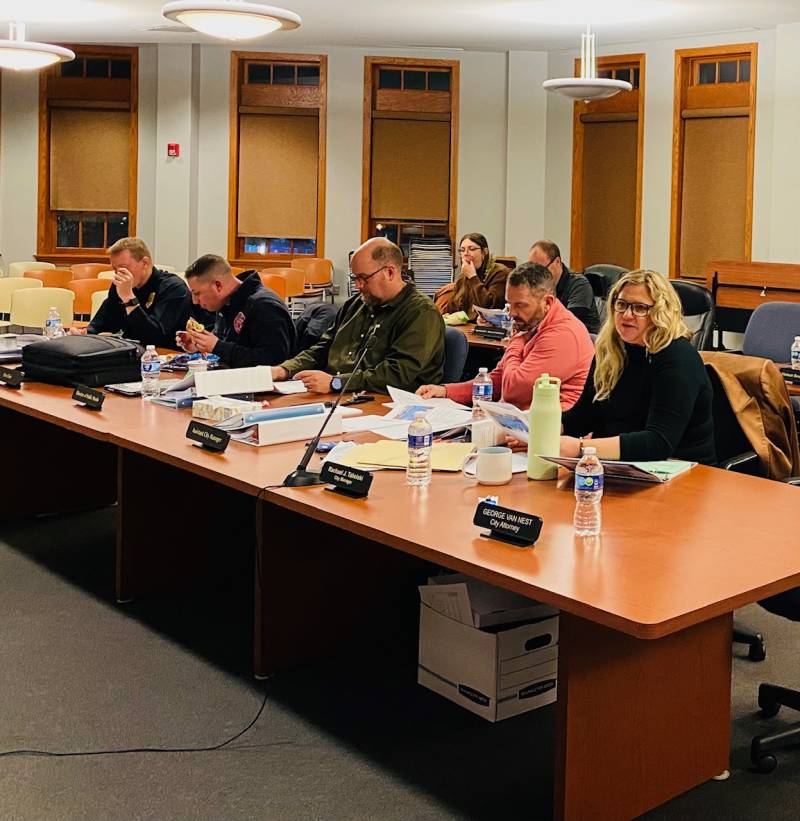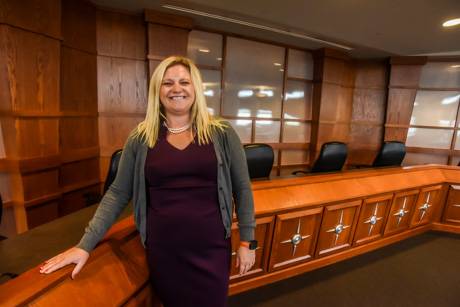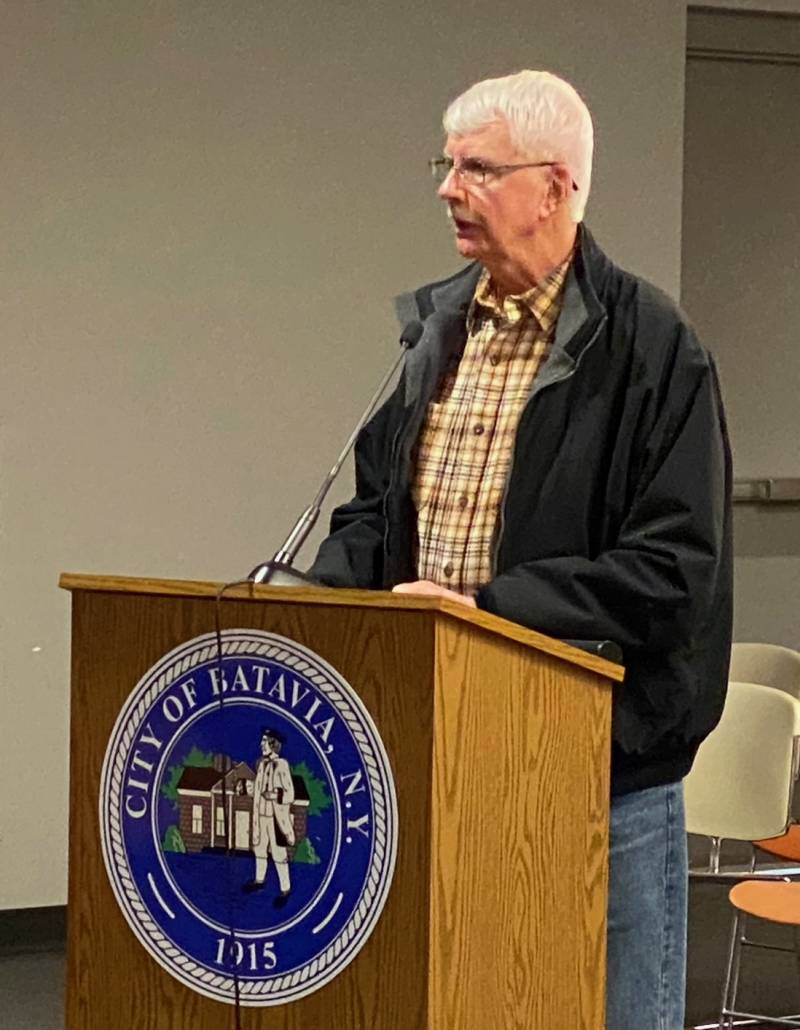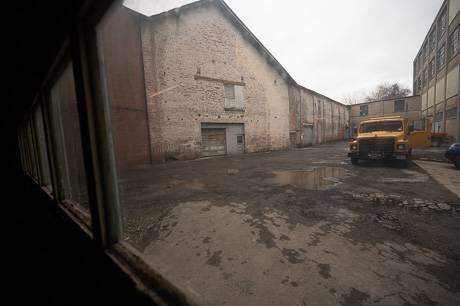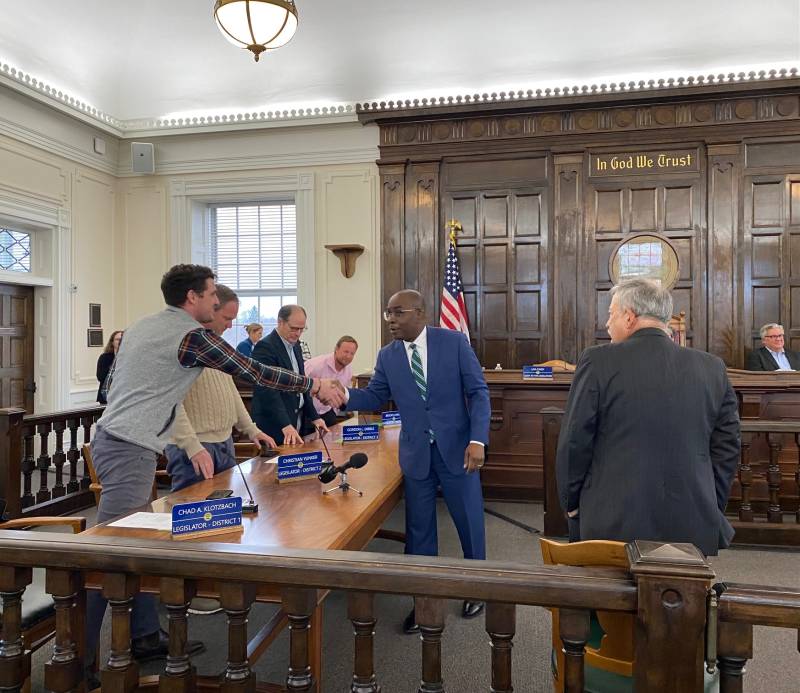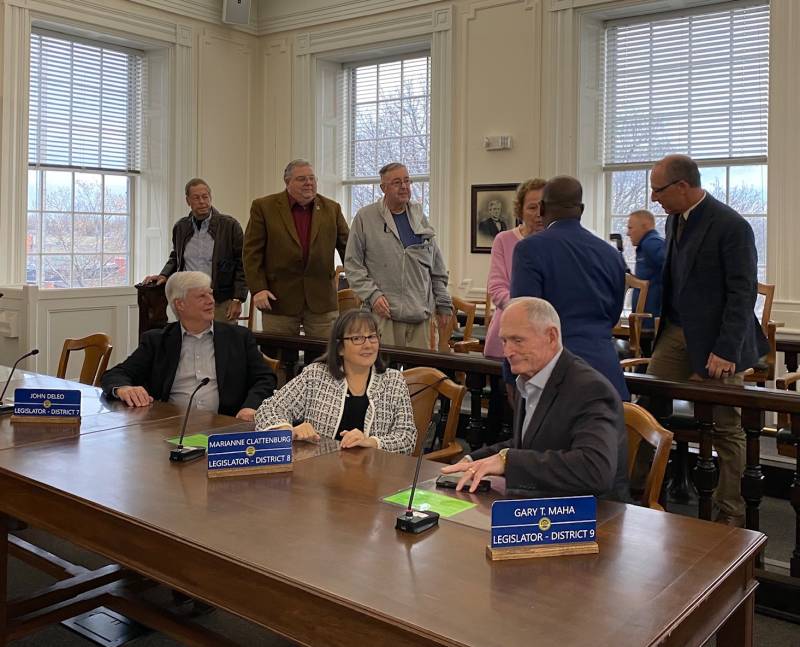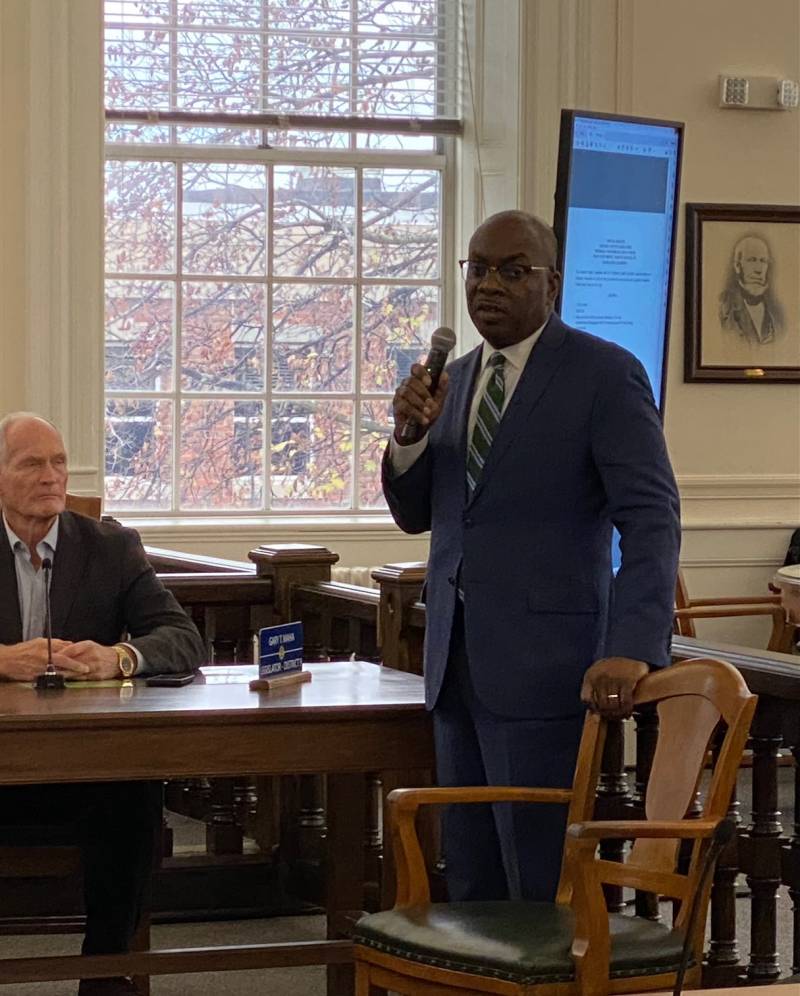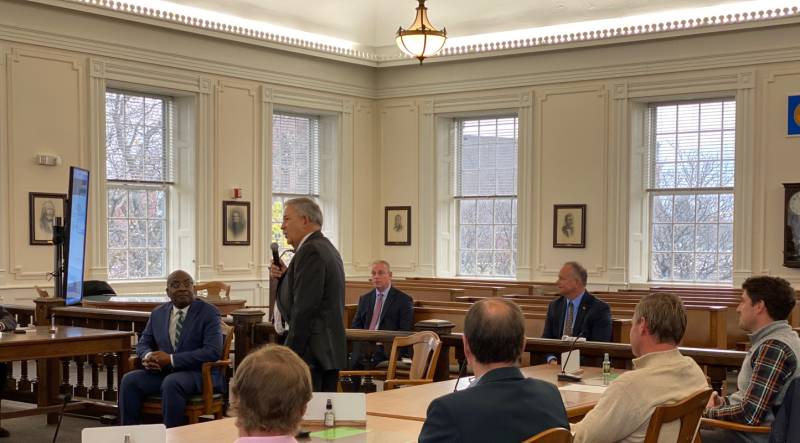Speakers give mixed thoughts about expanded open container law downtown during hearing
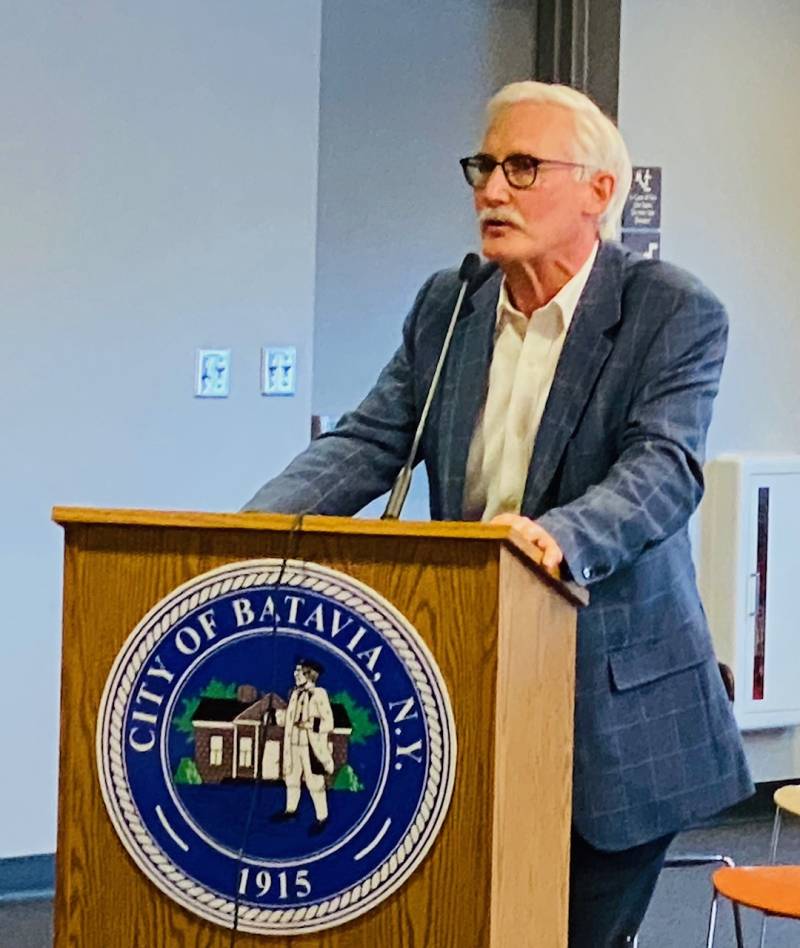
Photo by Joanne Beck
With the majority of five speakers being in favor of expanding the city’s downtown open container law, business owner Dr. Marlin Salmon stood alone, discouraging City Council’s future yes vote, as the proposed amendment brought out downtown merchants on both sides of the issue during a pubic hearing Tuesday evening.
Matt Gray, representing his downtown Eli Fish Brewing Company and fellow merchant Center Street Smokehouse, said he has never had a bad report from prior special events that involved open container privileges, while Salmon said he doesn’t think it sets “a good example for the youth in our community.”
To be fair, Salmon, who owns an orthodontics business in Batavia City Centre, said he knows that certain businesses are going to probably benefit and has heard that other municipalities have enacted similar open container laws, but he is not clear about all of the benefits and adverse effects.
“As a business owner, I have concerns in that I have a lot of young people coming in and out of my business on a weekly basis, and there have been some issues around my business. In the past, we used to have the benches out in front of our businesses in that area in the past, and we used to have people kind of in that area, and there were some issues with the drinking and we had that little bus stop there,” he said during the hearing at City Hall. “So that area of the mall just seems to get a lot of traffic, and I'm concerned how my patients and how my parents are going to perceive this, and then also I have concerns as far as how that's going to impact inside the mall itself. I know there's been some issues there, as far as the enforceability of the concourse.”
He’s not against having open containers during special events, such as the annual beer and wine walks — “I think there certainly is a time and place for it” — but overall on a day-to-day basis, he is “not if favor of it,” he said.
Gray reminded everyone that Jackson Square became “open container friendly” last year.
“And as Eli Fish, along with Center Street Smokehouse, we are the direct beneficiaries of that, but we're also the ones who have been able to see how it's gone. I'm happy to report that we have had no issues, reported no issues on our end, and what we had seen last year was a great season where we had a great Friday night concert series. We were able to add a Saturday night concert series with the help of Center Street, BID and GO ART!, and all of those went very well with the open container,” Gray said. “And while you know, to be honest, open container isn't the thing that makes that evening, it’s about great music and friends. And while you may not be thinking of it at the time, it does add to the evening, as far as opening up the container law for the entire downtown mid area.
“This summer, we should see the reopening of a great Italian steakhouse down here. We'll see our first tequila bar. We're going to see Carr’s Reborn finally become a reality … we're really excited for the momentum that we're seeing, and I think that the open container, ability to have festivals and have a downtown dining district only adds to that,” he said. “And when you start adding population that actually lives there too, you really do become the center of the county, and your destination for all to live, work and play.”
An initiative brought forth by the Business Improvement District to allow for open containers from noon to 10 p.m. on a daily basis in that downtown area, except for Court Street where government buildings are, and in Austin Park, expanding this local law is “a really good step forward for our downtown as part of the long-term revitalization towards encouraging more businesses downtown,” BID President Zach Korzelius said.
“There's a lot of communities in our local area and all over New York State moving forward with similar plans, and in a lot of these smaller towns, it really does help out with the downtown atmosphere, and that's the biggest thing. This focus isn't just about open container; it’s really about revitalizing our downtown atmosphere and culture. It makes us get that more modern look that a lot of small towns and villages are going for,” Korzelius said. “And as (Executive Director) Shannon said, in some of these small towns, Lancaster, for example, has done similar things in their downtown has really seen a good push, and especially with housing situations, it encourages a lot more younger people that have that most vibrant feel that they want to be able to be in that kind of, what we like to call social/downtown district.
“So I really appreciate the council taking this into consideration. Since I've been on the BID now as president going into my second year, this was one of my two big initiatives that I wanted to help accomplish,” he said. “This vote isn't just about the ordinance, but it's about the culture of our downtown, making people feel less regulated and feel more open to doing business downtown.”
City residents Sammy DiSalvo and John Roach also spoke up for the proposal. Roach believes it will alleviate excessive drinking by allowing people to take a drink with them rather than having to “chug it down if you want to leave,” he said. It just makes sense, he said.
“It’s always amazing that other areas can do things and people that say, well, geez, it won’t work here. Why not? What makes you think we’re different?” he said. “If it works at other places, why can it not work here? I think it’s a very good idea that the whole council votes up for it unanimously.”
Councilman Bob Bialkowski asked devil’s advocate questions about the city’s liability: what if you walk into City Hall, go into the clerk’s office to ask some questions, have a couple of beers and fall down the stairs.
“So now I’m going to sue the city. Whether they win or not, it’s immaterial at this point; it’s illegal. Costs are going up, and all the taxpayers have to pay,” he said. “So the risk is of the entire city for any litigations brought up. The city could be implicit for any of that versus the gain will only be for smaller (portions of the city), and these are one of the questions I had."
There are limited instances in which any municipal entity can be found liable for a public space, City Attorney George Van Nest said, and the addition of open containers in that public space is “not necessarily going to change that dynamic.”
“There are prerequisites to finding a municipal entity liable, notice of defects, negligence, things of that sort. So, without getting into the weeds in terms of hypotheticals, that doesn't necessarily create liability on behalf of the city, the point of being subject to a lawsuit. Anybody can be subject to a lawsuit in the U.S.,” he said. “That's the nature of our society. It doesn't mean there's a liability. It doesn't mean there's an actual exposure associated with a defendant being found liable. It just simply means we live in a litigious society.”
Council President Eugene Jankowski Jr. raised a different concern about the mall, or Batavia City Centre. He asked if it would be included in the amended local law, and city management said yes, it would be. Just because it’s in a separate building does not make it exclusive to BID laws, or open container, just because the businesses are inside.
“I’d like a little more information on the mall component. I mean, you've explained it as far as the public space is concerned, but it might be something that I could foresee a problem, especially in the winter months. Someone might decide to come in and have mini parties in one section of the mall. I don't know if that's appropriate, but if it's allowed, then it could be a potential risk,” Jankowski said. “So I just think stuff like that should be kind of considered, maybe, because it's a separate group of individual businesses within a separate building. It's not the same as the downtown area. So there is that component to it. So I'd like a little more information on that, not necessarily against it. I just wanted some more clarity to make amendments.”
If any further amendments are made to the law, another public hearing would be required, City Manager Rachael Tabelski said. Council agreed to move the measure, as is, to a future business meeting for a vote.
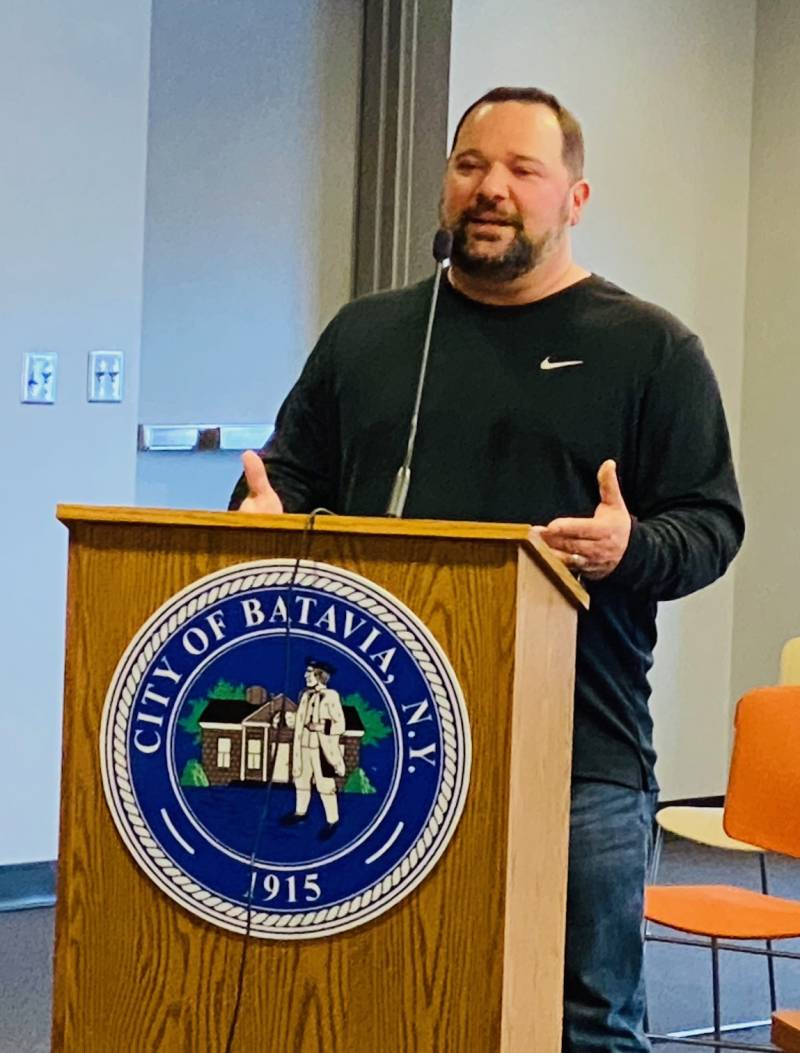
Photo by Joanne Beck
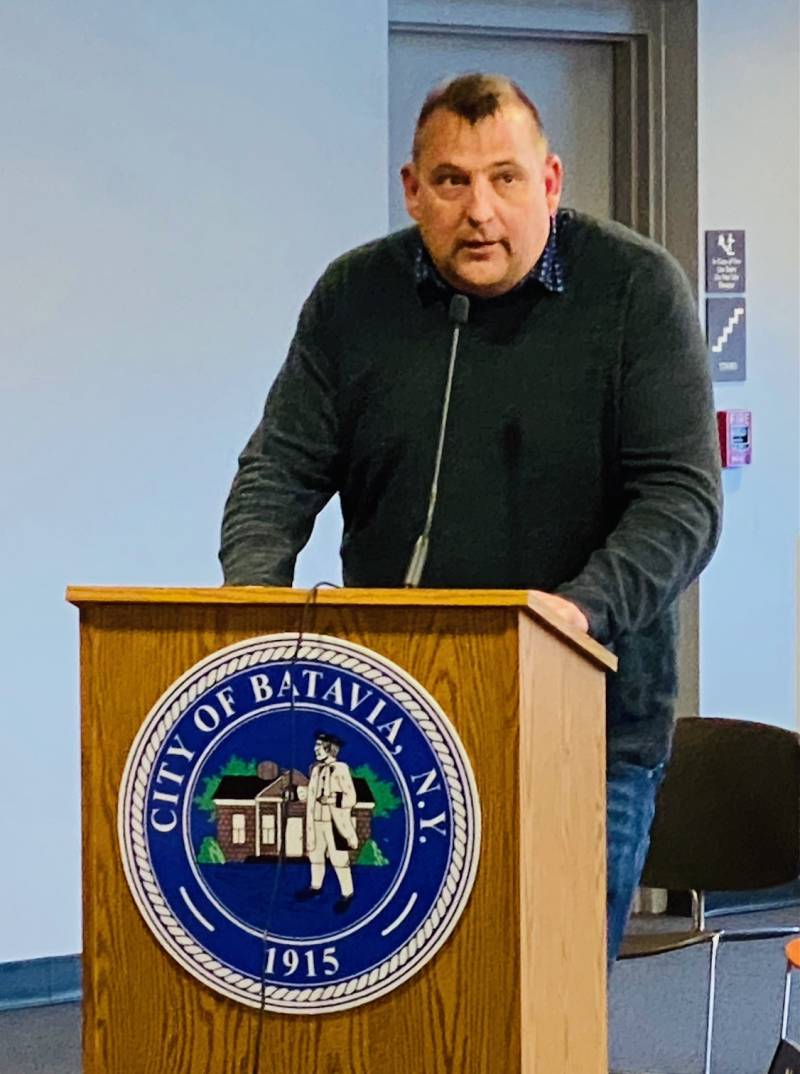
"Additionally, I think that by allowing it in the mall, with the hopes that apartments come to the mall, that this would also encourage people to want to live downtown, because it makes it a social gathering area as well."
Photo by Joanne Beck

